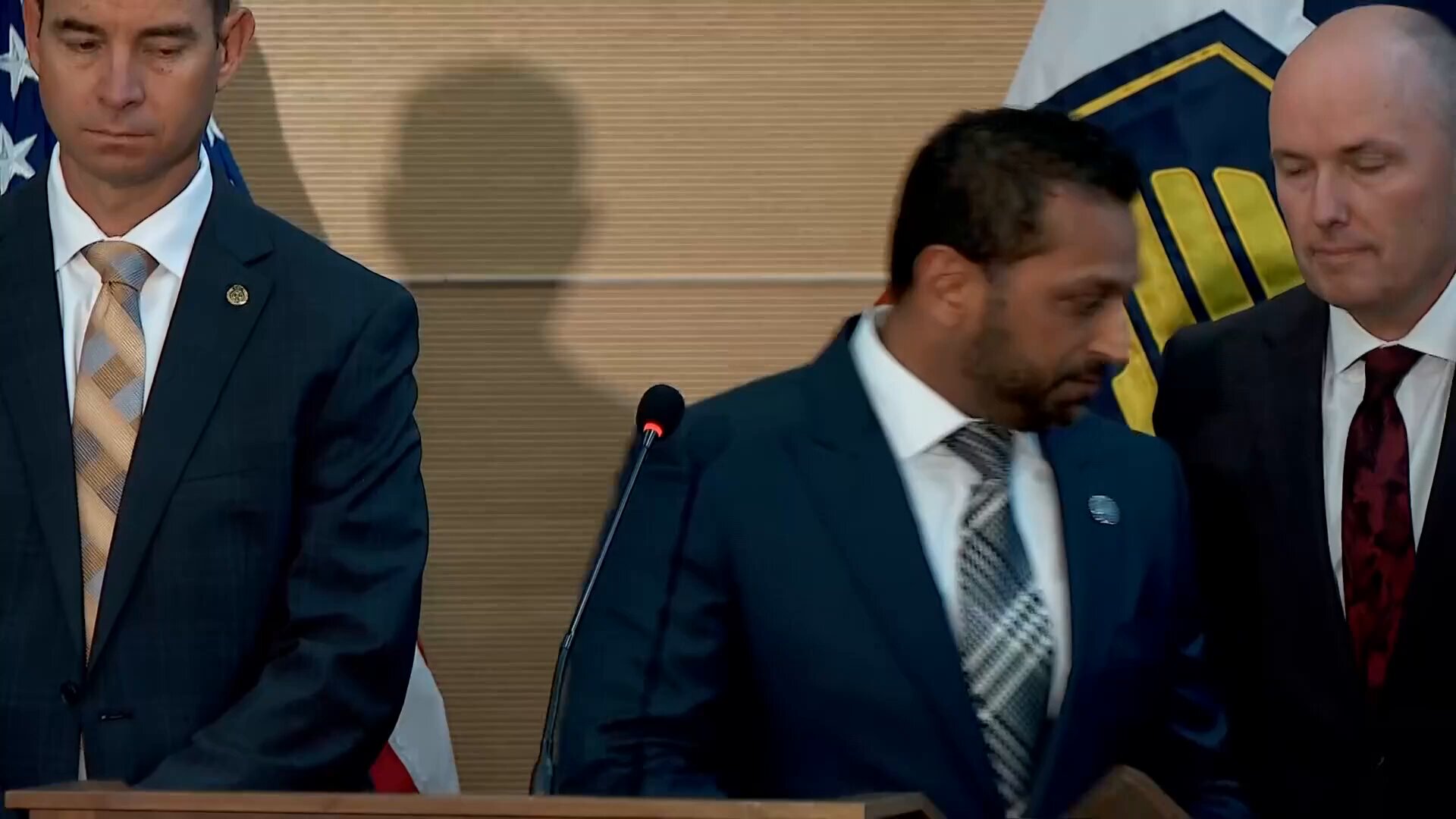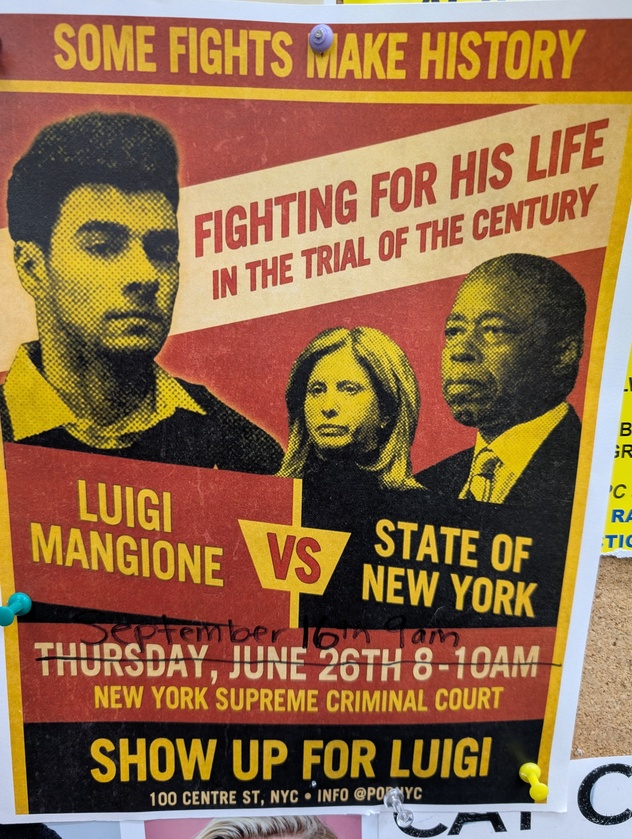
Tweet from Israeli Haviv Rettig Gur tied to Charlie Kirk and America
I've been in America for the past week, and I'll be here for a few days more. It's been a week of pain and rage and confusion. Charlie Kirk's murder surfaced a great many of America's latent anxieties and fissures. On the left, I witnessed a startled discovery of the scale of their own self-validating lies, in this case about both Charlie and his murder. Stephen King apologized for repeating the claim Charlie had called for the stoning of gays, a claim pushed as fact in left-wing discourse. Elsewhere in American discourse, raging antisemites garnered millions of likes and tens of millions of views by claiming Israel had killed Charlie - and a CNN anchor was stupid enough to ask on air if it was true.
Lies, rage and a sense of things falling apart, an America that feels itself dissolving, and with nowhere to turn to for wisdom and respite.
I can offer neither, though my heart breaks for America's current state. But there is wisdom to be found elsewhere, sages and books and ideas that heal and sanctify and light the darkness.
This week's Torah reading from Deuteronomy is titled Ki Tavo, "When you shall arrive (in the land)." It contains a beautiful series of blessings ("Blessed shall thou be in the city, and blessed shall thou be in the field." ) and a long litany of terrifying threats and warnings "that all these curses shall come upon thee, and overtake thee" if the people abandon their covenant and their purpose.
This great "Rebuke" passage, beginning in Deut. 28:15, is read this week in every synagogue. It's genuinely terrifying. It promises exile, famine, disease and defeat if the people go astray. It's kinda dramatic.
Probably the most beautiful comment on this passage I've heard (from Israeli journalist Aryeh Erlich) is sourced in the Jewish Hasidic sect of Chabad.
The 18th-century founder of Chabad, Rabbi Schneur Zalman of Liadi, the "Alter Rebbe" (the "old" or "revered master" ), had a tradition of making sure he himself read the Rebuke passage each year in his seminary. I suppose he wanted to make sure his students were paying attention to it.
But one year, the Alter Rebbe was not there for the Sabbath when Ki Tavo was read. Someone else had to read the Torah, including the Rebuke. When the Alter Rebbe's son, Rabbi Dov Baer Schneuri - later the second Chabad Rebbe - heard the Rebuke from someone else's mouth, the Hasidic legend tells us that he fainted in horror.
When the students managed to wake him again, they asked what happened. "What frightened you so? We read the Rebuke every year!"
Rabbi Dov Baer replied: "When father reads it, I hear only blessings."
A rebuke can come from love or it can come from rage. The text is identical, the meaning diametrically opposed. A rebuke from love is a blessing, a rebuke from rage, Reb Dov Baer taught, is a curse.
America is debating core questions of its identity and character and purpose. I have no standing to offer an opinion on the substance of these debates. But Jews know something about debate. Our sages have spent two and a half millennia teaching us that the core of any debate isn't the words but the intention, the good faith. Debate "for the sake of heaven" attains truth; argument that does not seek truth is mere hatred. Without good faith, without love and a hope for the betterment of the other, a rebuke is abuse and pain, and causes only abuse and pain in return.
Two weeks ago, in the Torah portion titled "Shoftim," "Judges," we are given this instruction: "Justice, justice shall you pursue, so that you may live."
Countless commentators have asked why the Torah repeats the word "justice." Some thought it showed that the Torah was commanding not only that the ends you're pursuing be just, but also the means for getting there.
But the Hasidic master Rabbi Simcha Bunim of Peshischa had a more interesting understanding. Justice, he explained, cannot be zero-sum. If my justice is served totally - not merely that I "win," but that I get what I truly and justly am owed - but it came at the expense of your justice, of what you need and deserve, then the final result isn't the justice the Torah demands of us. True justice cannot be one-sided.
"Justice for me, and justice for you," even when it goes against my interest, is the justice of the divine, which Judaism always imagines as a parent to us quarreling children.
The point isn't just to be magnanimous. As with Reb Dov Baer, the point is intent.
Reb Simcha Bunim's student, Rabbi Menachem Mendel Morgensztern of Kotzk, the Kotzker Rebbe, was explicit in taking this interpretation of "Justice, justice" to the realm of intent. The demand for justice only for yourself is not a demand for justice, for fairness, for truth; it is only a demand for damages. It is selfish. Selfishness is not inherently evil (though it often is), but it isn't justice in the eyes of the Torah, though our selfish selves often couch our demands as "justice." Real justice is the pursuit of the other side's interests as much as our own, the understanding of the other side's needs and mental world.
Judaism loves debate, obsesses about debates modern and ancient, spends all of its time and texts and mental energies on debate. We even have famous debates everyone learns as a kind of "all-star" list.
So it is from rich experience that the Sages ask these questions of any debate: When you threaten - what do you mean? Are you warning out of love, or threatening out of hate? When you scream for "justice" - what do you mean? Justice only for your perceived grievances, or justice for all?
Inasmuch as I have a single specific teacher as a Jew (besides my dad), it is the Kotzker, a rabbi who always demanded radical honesty of his students, who despised showmanship and hypocrisy, who thought honesty alone was the primary and most powerful curative to very nearly every emotional, spiritual and social ill.
In his spirit, let me humbly offer what I think would be Judaism's counsel for this American moment - with the caveat that Judaism is a gigantic intellectual space, that no one person speaks for it, and that I'm only doing so because nobody is stopping me.
Here is its counsel.
1. Be truthful. That includes assuming your side lies as much as the other side. There is no good to be found in lies, even if they feel affirming and validating and like the hammer-blows of "justice" against an immoral enemy. They are not. They are the dismantling of your own justice, your own truth, in the denial of the other side's.
2. Love. Whether a rebuke ends up as a blessing or a curse depends not on the words but on their intention. Even the most bitter and angry rebuke, if it is uttered between loving brothers, is merely a cry for closeness and an anguished demand to be seen. Make your rebuke, even if it is painful and fierce, into a blessing, speak it out of love, and both you and your enemy will be one step closer to that greater, truer justice that ensures you both may live.
3. And know that the brokenness of this moment is not itself a curse. "There is nothing more whole than a broken heart," the Kotzker famously taught. It is in the broken moments that we see most clearly, that we discover what we love and are willing to fight for, what we are willing to sacrifice for others. Brokenness is redemptive.
Shabbat shalom, America. May your curses become blessings. You remain the light.
Hi everyone, I haven't been active in Solid Ground for a while, but I am still alive and kicking! I now work as personal assistant to a mind-bendingly weird and diva-esque artist-lip-syncher-performer named Fiona Blueberry. She is blissfully clueless about politics and seems to be completely unaware of the culture wars. Working with her is a breath of fresh air. If you need a mood lift, I encourage you to watch this video we made together. Happy 4th, everyone! Wishing you fun/love/peace on this holiday. :) www.fionablueberry.com
Braver Angels, FAIR and other depolarization organizations are hosting this event online on Sunday, 9/14, 6pm-8pm. Dignity Over Violence: A Unified Civic Response
Date: Sep 14 • 6:00 pm
Speech by Utah Governor Spencer Cox re assassination of Charlie Kirk. (I know Carob has spoken negatively about him. I know if him from his involvement in Braver Angels. I think his message here is important.) https://x.com/BridgetPhetasy/status/1966530809310876129
















